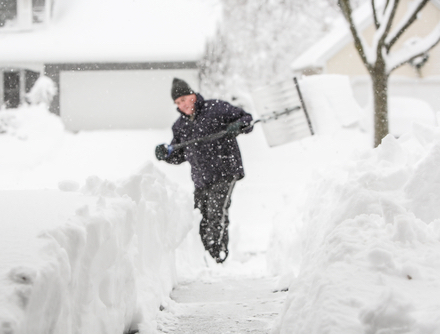Harsh Winter Leads to Vitamin D Deficiency: Study

In an unsurprising, yet telling finding, recent research identified a high risk of vitamin D deficiency during winter months for people in snowy, northern cities. Nearly half the residents of Buffalo, NY, have insufficient levels of the sunshine vitamin in the winter, and 25 percent may be considered deficient, the study from the University of Buffalo found.
The authors attribute the high rate of deficiency to wearing more clothes, spending less time outside and lack of direct sunlight in the winter months.
A press statement from the University also notes the profound impact of vitamin D deficiency, saying it may lead to lower bone density, weakened immune system, increased risk for type 2 diabetes, higher susceptibility to some cancers, increased risk of death from cardiovascular disease, and cognitive impairment in older adults.
“Every cell in the body is responsive to vitamin D,” says Horvath, associate professor in the Department of Exercise and Nutrition Sciences. “If you’re deficient, you won’t see the health effects for years and it could take months to get your levels back up.”
Click here to read the press statement from the University of Buffalo.
SmartTan.com news articles regularly report medical and scientific information to keep you abreast of current events related to UV light. This information is not intended to be used by any party to make unwarranted health claims to promote sunbed usage. Indoor tanning businesses are obligated to communicate a fair and balanced message to all clients about your products and services including the potential risks associated with indoor tanning. Contact your Smart Tan representative to find out more about what you can and can’t say in your tanning salon business.
© 2015 International Smart Tan Network. All rights reserved.
